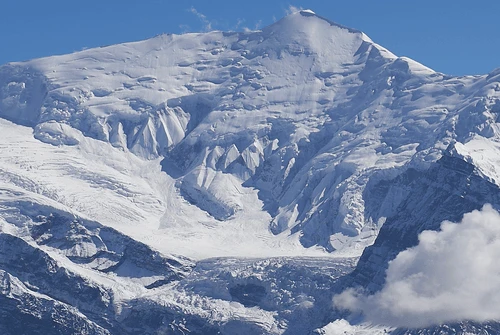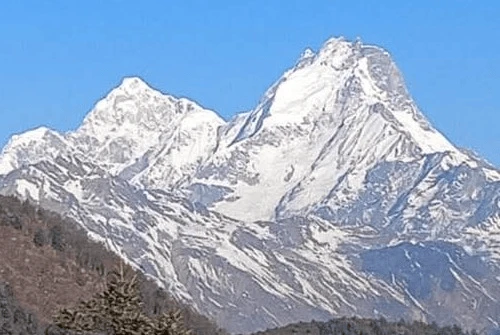The Environmental Impact of Tourism
Tourism, when not managed properly, can have detrimental effects on the environment. The overuse of natural resources, pollution, waste generation, and disruption of ecosystems are just a few examples of the negative consequences. In the pristine mountains of the Himalayas, for example, the influx of trekkers can contribute to littering, deforestation, and water contamination. These issues not only harm the environment but also degrade the beauty of the very places travelers come to experience.
Responsible tourism encourages visitors to minimize their environmental impact. Simple actions such as carrying reusable water bottles, avoiding plastic, and respecting wildlife can make a significant difference. Additionally, it advocates for sustainable practices like supporting eco-friendly hotels, trekking with licensed guides, and promoting conservation efforts.
Preserving Traditional Cultures and Heritage
Nepal is a country where traditions, rituals, and customs are deeply rooted in daily life. From the festivals and dances to the handicrafts and clothing, these elements are the heart and soul of Nepalese identity. However, the rapid growth of tourism has often led to the commodification and exploitation of these cultural aspects. As more tourists visit Nepal, there’s a growing concern that the authenticity of traditional practices may be lost in the pursuit of profit.
At All Nepal Hiking, we believe that tourism should help preserve and showcase authentic cultural experiences, not diminish them. This is why our tours are designed with a focus on respecting local customs and traditions. We encourage travelers to engage with the local community, not as mere spectators, but as participants in cultural exchange. Whether it’s learning about traditional farming methods, watching a local dance performance, or purchasing handmade crafts directly from artisans, every interaction fosters a deeper connection with the culture.
Community Empowerment Through Tourism
One of the key aspects of responsible tourism is its ability to empower local communities. Nepal’s rural areas, especially the villages in the Himalayas, rely heavily on tourism as a source of income. By supporting local businesses, buying handmade products, and engaging with the community in a meaningful way, tourists can contribute to the economic development of these areas.
All Nepal Hiking’s packages are carefully crafted to provide opportunities for visitors to interact with local communities. These interactions allow tourists to gain a better understanding of the people who live in these remote areas, while also providing locals with the chance to share their stories, traditions, and crafts. Purchasing local products not only supports the local economy but also helps preserve traditional craftsmanship, which can otherwise be lost in the face of modernization.
Sustainable Development and the Preservation of Natural Resources
Nepal’s rural communities are intrinsically linked to the land and nature. Agriculture, especially traditional farming, is a key part of life in many areas. Responsible tourism encourages tourists to respect and appreciate the natural environment, understanding that sustainable farming practices are essential for both local livelihoods and the protection of Nepal’s biodiversity.
By supporting tourism activities that align with sustainable farming, we help ensure that traditional farming methods continue to thrive. This approach not only reduces the carbon footprint but also ensures that local resources are used in a way that benefits both the community and the environment. Trekking routes that pass through areas where agriculture is practiced help visitors witness how closely intertwined the people are with their land, promoting a deeper respect for the environment.
Balancing Prosperity with Tradition
One of the main challenges of tourism is finding a balance between growth and sustainability. Tourism has the potential to bring prosperity, but without careful management, it can also disrupt the traditional way of life. For example, increased demand for modern amenities, such as electricity and infrastructure, can place unnecessary pressure on local resources and change the social fabric of small communities.
At All Nepal Hiking, we aim to offer tourism experiences that strike this balance. Our packages are designed to ensure that local traditions and livelihoods are respected while encouraging economic growth. We work closely with local guides, communities, and organizations to create a tourism model that benefits everyone—without sacrificing the cultural integrity or the natural beauty of Nepal.
Responsible Tourism: An Act for All
Responsible tourism is not just about the actions of tourists—it is a collective effort that involves tour operators, local communities, government bodies, and travelers. Each party plays an essential role in ensuring that tourism in Nepal remains a force for good. As travelers, it is important to be conscious of our actions, to educate ourselves about the places we visit, and to make choices that contribute positively to the destination.
For tour operators, it is our responsibility to design tours that highlight local culture and traditions while minimizing environmental impact. We must work closely with local communities to ensure that they benefit directly from tourism and that their voices are heard in the decision-making process. For the local people, welcoming tourists with warmth and pride in their culture helps create an authentic experience for both parties.
Conclusion: Embrace Responsible Tourism with All Nepal Hiking
At All Nepal Hiking, we are committed to promoting responsible tourism that prioritizes cultural preservation, environmental sustainability, and community empowerment. We believe that tourism should not only be an enjoyable experience for visitors but also a means of supporting and uplifting the communities and environments we visit. By making responsible choices and encouraging others to do the same, we can ensure that Nepal’s beauty, culture, and traditions continue to thrive for generations to come.
If you're ready to embark on a journey that respects and supports Nepal’s heritage, culture, and environment, join us on one of our responsible tours and experience the true essence of this incredible country.




